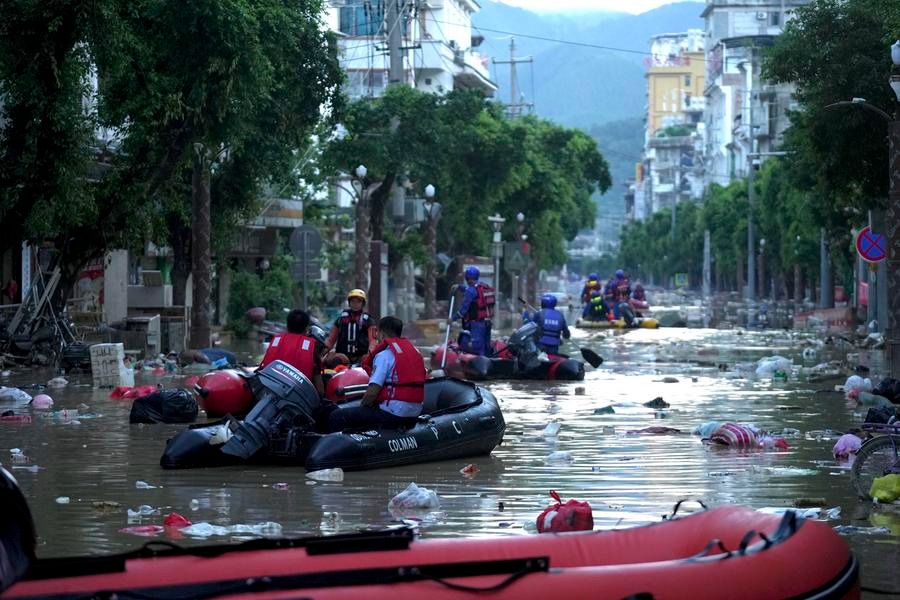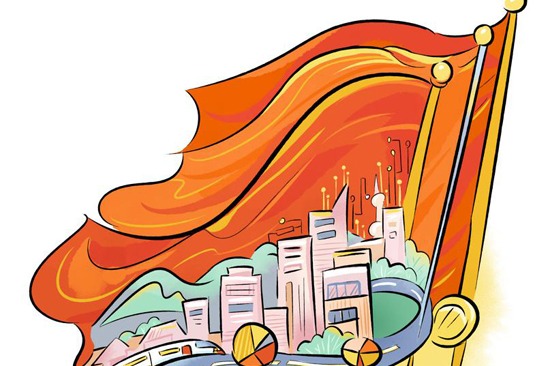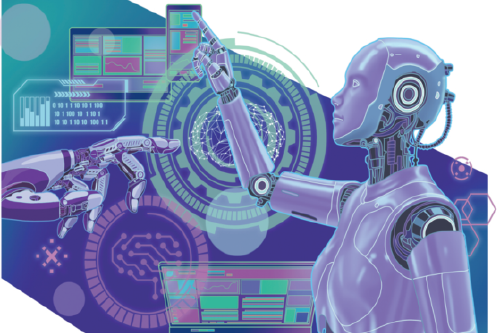Self-discipline crucial to Party's success


An education campaign on the eight-point decision on improving work conduct has been carried out nationwide. Some external observers may question why China has launched such a campaign. However, the eight rules, including diligence and anti-extravagance, contain the secrets of the Communist Party of China's success.
Its success is multifaceted, and a key to its success is the Party's mechanisms for continuous self-correction and official selection process: selection of qualified, deserving, committed and talented officials. These mechanisms ensure the Party leadership remains honest, sincere and responsible, serving as steadfast leaders and organizers across the political, economic, cultural and social spectrums.
The Party's mechanism of continuous self-correction encompasses multiple dimensions, including internal inspections, anti-corruption investigations, the Party school system, cadre rotation and the leaders' combined role in policy adaptation and institutional flexibility.
Internal inspections play a crucial role in the mechanism. Through these inspections, the Party can promptly identify problems and apply necessary pressure on officials by evaluating officials' political performance, competence and integrity. This process provides accurate references for selecting and cultivating high-quality, honest cadres, thus promoting a healthy and merit-based selection arrangement.
Through regular political oversight, internal inspections minutely examine officials' performance and deviations in policy implementation, preparing a comprehensive list of problems and ways to solve them. These findings serve as direct empirical input for the decision-makers to adjust policies.
The anti-corruption system has established clear boundaries for the exercise of power through the rigid application of rule of law. This is achieved by building a comprehensive system of intra-Party regulations and anti-corruption laws, and by identifying the redlines for policy enforcement. An integrated approach combining punitive deterrence, institutional prevention and self-discipline is adopted to ensure officials dare not, cannot and do not want to be corrupt.
The Party school system focuses on the intellectual aspect of training, policy innovation and selection by combining theoretical education with practical discussion platforms. At their different levels, Party schools incorporate courses such as policy simulation exercises and governance case studies into cadre training programs, guiding participants to evaluate the effectiveness of the current policies from a theoretical perspective. In doing so, they generate references for central policy revisions, effectively serving as think tanks for policy updates.
As for the rotating system, it enables officials to accumulate diverse practical experiences in policy implementation by serving in different regions and departments. For example, when officials from economically developed areas are through rotation chosen to serve less-developed regions, their adaptation to industrial support policies can be included in the policymaking process. This helps promote a "category-based guidance" approach to policy refinement.
In terms of institutional design, political polarization in the West has led to fragmented selection mechanisms. Political parties draw strict ideological lines, marginalizing centrists and fostering "veto politics", with little emphasis on cross-sectoral coordination and collaboration. In contrast, the CPC has developed a comprehensive mechanism of selection, training and management.
In terms of value orientation, elite selection in many Western countries often serves short-term electoral interests, with candidates pandering to certain groups to garner voters' support, leading to policy reversals and deepening social divisions. In China, elite selection is guided by the fundamental principle of "serving the people".
In terms of practical logic, populism in Western societies has fueled "anti-elite" sentiments, creating a confrontational dynamic where forces outside the system attempt to challenge the establishment from within, thereby weakening governance. In China, internal inspections, anti-corruption mechanisms and strict supervision serve to strengthen discipline, channeling outstanding talents into an institutionalized selection track.
The CPC's mechanism of continuous self-correction and elite selection forms a synergistic system of "supervision, constraint, education and practice", establishing a closed-loop framework for continuous policy refinement. Specifically, inspections identify deviations in policy implementation, the anti-corruption system reinforces bottom-line discipline, the Party school system provides theoretical innovation and intellectual support, and the rotation system helps officials gather diverse practical experiences.
This ensures that official selection and cultivation remain in synchrony with the broader agenda of deepening reform, and building a strong talent foundation for national development and the rejuvenation of the Chinese nation.

The author is director of the China Anti-Corruption Judicial Research Center, China Against Corruption Law Association, and dean of the Discipline Inspection Institute, Xiangtan University. The views don't necessarily reflect those of China Daily.
If you have a specific expertise, or would like to share your thought about our stories, then send us your writings at opinion@chinadaily.com.cn, and comment@chinadaily.com.cn.

































